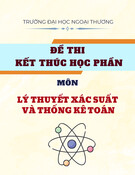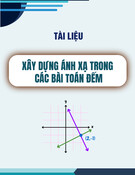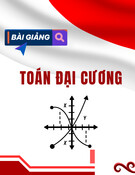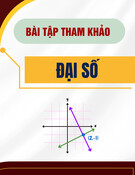
51st International Mathematical Olympiad
Astana, Kazakhstan 2010
Problems with Solutions


Contents
Problems 5
Solutions 7
Problem1............................................. 7
Problem2............................................. 8
Problem3............................................. 9
Problem4............................................. 10
Problem5............................................. 11
Problem6............................................. 13


Problems
Problem 1. Determine all functions f:R→Rsuch that the equality
f(⌊x⌋y)=f(x)⌊f(y)⌋
holds for all x, y ∈R. (Here ⌊z⌋denotes the greatest integer less than or equal to z.)
Problem 2. Let Ibe the incentre of triangle ABC and let Γ be its circumcircle. Let the line AI
intersect Γ again at D. Let Ebe a point on the arc \
BDC and Fa point on the side BC such that
∠BAF =∠CAE < 1
2∠BAC.
Finally, let Gbe the midpoint of the segment IF . Prove that the lines DG and EI intersect on Γ.
Problem 3. Let Nbe the set of positive integers. Determine all functions g:N→Nsuch that
(g(m) + n)(m+g(n))
is a perfect square for all m, n ∈N.
Problem 4. Let Pbe a point inside the triangle ABC. The lines AP ,BP and CP intersect the
circumcircle Γ of triangle ABC again at the points K,Land Mrespectively. The tangent to Γ at C
intersects the line AB at S. Suppose that SC =SP . Prove that MK =ML.
Problem 5. In each of six boxes B1, B2, B3, B4, B5, B6there is initially one coin. There are two
types of operation allowed:
Type 1: Choose a nonempty box Bjwith 1 ≤j≤5. Remove one coin from Bjand add two
coins to Bj+1.
Type 2: Choose a nonempty box Bkwith 1 ≤k≤4. Remove one coin from Bkand exchange
the contents of (possibly empty) boxes Bk+1 and Bk+2.
Determine whether there is a finite sequence of such operations that results in boxes B1, B2, B3, B4, B5
being empty and box B6containing exactly 201020102010 coins. (Note that abc=a(bc).)
Problem 6. Let a1, a2, a3, . . . be a sequence of positive real numbers. Suppose that for some
positive integer s, we have
an= max{ak+an−k|1≤k≤n−1}
for all n > s. Prove that there exist positive integers ℓand N, with ℓ≤sand such that an=aℓ+an−ℓ
for all n≥N.

















![Bài tập Đại số tuyến tính [chuẩn nhất]](https://cdn.tailieu.vn/images/document/thumbnail/2025/20250930/dkieu2177@gmail.com/135x160/79831759288818.jpg)








